building a CUNY DH Community since 2010
Katina Rogers on Alt-Academic Careers: Mon 11/18, 4:15p-5:30p Rooms 9204/9205
On 11, Nov 2013 | In Events of Interest | By Laura Kane
Please join CUNY DHI and the Digital Praxis Seminar for a talk by Katina Rogers on Alt-Academic Careers.
Katina Rogers – Alt-Academic Careers
While many graduate programs continue to focus on tenure track placement rates, a growing proportion of humanities scholars are embracing a much broader range of intellectually stimulating careers in, around, and beyond the academy. Focusing both on her own career path and on her research at the Modern Language Association, the Scholarly Communication Institute, and the Scholars’ Lab at the University of Virginia, Katina Rogers will discuss strategies to support professionalization, public scholarship, and career development across a wide array of possible outcomes.
About the Speaker
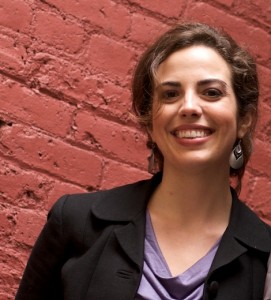 Katina Rogers is managing editor of MLA Commons, the Modern Language Association’s new online platform for collaboration and scholarly communication. She previously served as Senior Research Specialist with the Scholarly Communication Institute, a Mellon-funded humanities think tank based in the University of Virginia’s Scholars’ Lab. Her current research focuses on graduate education reform, career paths for humanities scholars, and innovative modes of scholarly production. Katina holds a Ph.D. in Comparative Literature from the University of Colorado.
Katina Rogers is managing editor of MLA Commons, the Modern Language Association’s new online platform for collaboration and scholarly communication. She previously served as Senior Research Specialist with the Scholarly Communication Institute, a Mellon-funded humanities think tank based in the University of Virginia’s Scholars’ Lab. Her current research focuses on graduate education reform, career paths for humanities scholars, and innovative modes of scholarly production. Katina holds a Ph.D. in Comparative Literature from the University of Colorado.
Ray Siemens, “Building Blocks of the Social Scholarly Edition” – Mon 11/11, 4:15p-5:30p, Rooms 9204/9205
On 06, Nov 2013 | In Events of Interest | By Laura Kane
Please join CUNY DHI and the Digital Praxis Seminar for a talk by Ray Siemens on the digital social edition.
“Building Blocks of the Social Scholarly Edition”
This talk explores elements of the scholarly edition in the context of new and emerging social media from two pertinent perspectives: the first from the foundational perspective of its theoretical context, particularly as that context intersects with a utility-based consideration of the toolkit that allows us to consider the social edition as an extension of the traditions in which it is situated and which it has the potential to inform productively; the second is from the perspective of an iterative implementation of one such edition, A Social Edition of the Devonshire MS [BL Add MS 17,492] (http://en.wikibooks.org/wiki/The_Devonshire_Manuscript), carried out via a research team operating in conjunction with an advisory group representing key expertise in the methods and content-area embraced by the edition.
About the Speaker
 Ray Siemens (http://web.uvic.ca/~siemens) is Canada Research Chair in Humanities Computing and Distinguished Professor in the Faculty of Humanities at the University of Victoria, in English and Computer Science, and visiting professor at NYU in 2013. He is founding editor of the electronic scholarly journal Early Modern Literary Studies, and his publications include, among others, Blackwell’s Companion to Digital Humanities (with Schreibman and Unsworth), Blackwell’s Companion to Digital Literary Studies (with Schreibman), A Social Edition of the Devonshire MS, and Literary Studies in the Digital Age (MLA, with Price). He directs the Implementing New Knowledge Environments project, the Digital Humanities Summer Institute and the UVic Electronic Textual Cultures Lab, and serves as Vice President of the Canadian Federation of the Humanities and Social Sciences for Research Dissemination and Chair of the Modern Language Association’s Committee on Scholarly Editions, recently serving also as Chair of the international Alliance of Digital Humanities Organisations’ Steering Committee.
Ray Siemens (http://web.uvic.ca/~siemens) is Canada Research Chair in Humanities Computing and Distinguished Professor in the Faculty of Humanities at the University of Victoria, in English and Computer Science, and visiting professor at NYU in 2013. He is founding editor of the electronic scholarly journal Early Modern Literary Studies, and his publications include, among others, Blackwell’s Companion to Digital Humanities (with Schreibman and Unsworth), Blackwell’s Companion to Digital Literary Studies (with Schreibman), A Social Edition of the Devonshire MS, and Literary Studies in the Digital Age (MLA, with Price). He directs the Implementing New Knowledge Environments project, the Digital Humanities Summer Institute and the UVic Electronic Textual Cultures Lab, and serves as Vice President of the Canadian Federation of the Humanities and Social Sciences for Research Dissemination and Chair of the Modern Language Association’s Committee on Scholarly Editions, recently serving also as Chair of the international Alliance of Digital Humanities Organisations’ Steering Committee.
Kathleen Fitzpatrick, “Open Review, the New Peer, and the Future of Scholarly Communication” – Mon, 11/4, 4:15pm-5:30pm, Room 9206/9207
On 30, Oct 2013 | In Events of Interest | By Laura Kane
Kathleen Fitzpatrick: “Open Review, the New Peer, and the Future of Scholarly Communication”
About The Speaker
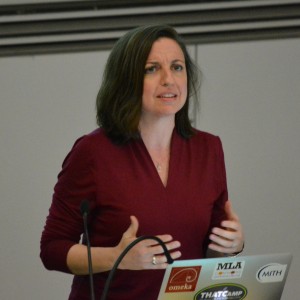 Kathleen Fitzpatrick is Director of Scholarly Communication of the Modern Language Association and Visiting Research Professor of English at NYU. She is author of Planned Obsolescence: Publishing, Technology, and the Future of the Academy (NYU Press, 2011) and of The Anxiety of Obsolescence: The American Novel in the Age of Television (Vanderbilt University Press, 2006). She is co-founder of the digital scholarly network MediaCommons, where she has led a number of experiments in open peer review and other innovations in scholarly publishing.
Kathleen Fitzpatrick is Director of Scholarly Communication of the Modern Language Association and Visiting Research Professor of English at NYU. She is author of Planned Obsolescence: Publishing, Technology, and the Future of the Academy (NYU Press, 2011) and of The Anxiety of Obsolescence: The American Novel in the Age of Television (Vanderbilt University Press, 2006). She is co-founder of the digital scholarly network MediaCommons, where she has led a number of experiments in open peer review and other innovations in scholarly publishing.
Larry Smarr on Digital Culture and the Future Internet: Wed, 10/30
On 28, Oct 2013 | In Uncategorized | By Amanda Licastro
Wednesday, Oct 30th, 2013, 6:00pm, Room C205 at the Graduate Center, CUNY.
This event is co-sponsored by the the DH Praxis Seminar and the Center for the Humanities: http://centerforthehumanities.org/events/Digital-Culture-and-the-Future-Internet.
This event is free and open to the public, registration is not mandatory.
Please reserve you space here: http://cunydhi-smarr.eventbrite.com
Larry Smarr
Professor Larry Smarr is a physicist and leader in scientific computing, supercomputer applications, and Internet infrastructure at the University of California, San Diego. In 2000, Smarr moved to California and proposed the creation of the California Institute for Telecommunications and Information Technology (Calit2), linking departments and researchers at UCSD and UC Irvine. Smarr currently serves as Institute Director of Calit2.
Digital Culture and the Future Internet
Join Larry Smarr, founding Director of the California Institute for Telecommunications and Information Technology (Calit2), as he explores the future of the Internet and digital culture. The Institute develops next generation of information technologies, including optical networks, information visualization, and global telepresence. Under Smarr’s leadership, Calit2 also supports a wide range of innovative projects in digital humanities and in digital art. In these projects, humanists and artists collaborate with scientists to explore potential of new technologies which will not become widely available for another 10-15 years.
To join the digital conversation, use the hash tags: #digitalgc and #cunydhi
William J. Turkel, ” The Hands-On Imperative”- Mon 10/21, 4:15pm-5:30pm, Skylight Room (9100)
On 17, Oct 2013 | In Events of Interest | By Amanda Licastro
Please join CUNY DHI and the Digital Praxis Seminar in welcoming William Turkel for a talk on physical computing and the humanities.
This event will take place Monday, 10/21, from 4:15pm-5:30pm, in the Skylight Room (9100).
This event is free to attend and open to the public. We request you RSVP here, but registration is not mandatory:
http://cunydhi-turkel.eventbrite.com/
William Turkel is engaged in computational history, big history, STS, physical computing, desktop fabrication and electronics. His new monograph, Spark from the Deep, is now available. Turkel is currently working on a study of attempts to build a self-replicating device, from the machine tools of the Industrial Revolution to the RepRaps of today. As part of this research, he has built a series of 3D printers and other CNC tools. The other project Turkel is working on is a study of mid-20th-century analog electronic computing. Turkel teaches Max 6 programming to undergraduates in Western’s new digital humanities option, and to grad students in the interactive exhibit design course. Turkel is also teaching a new graduate course on digital research methods that makes use of command line tools in Linux virtual machines. You can find him on Twitter at @williamjturkel
Matthew G. Kirschenbaum, “Track Changes: The Literary History of Word Processing” – Oct 15, 4:15-5:30pm – Room C204/C205
On 14, Oct 2013 | In Meetings | By Matthew K. Gold
Please join us for a talk by Matthew Kirschenbaum on his forthcoming book project, which was recently profiled in the New York Times: The Muses of Insert, Delete and Execute. Matt’s visit is made possible by the Office of the Provost at the Graduate Center and is being made in connection with the Digital Praxis Seminar.
This event will take place on Tuesday, October 15, 2013 from 4:15-5:30pm at the Graduate Center, CUNY in C204/205 (Concourse Level). Please join us!
—
Track Changes: The Literary History of Word Processing
Mark Twain famously prepared the manuscript for Life on the Mississippi (1883) with his new Remington typewriter, the first literary text ever submitted to a publisher in typewritten form. Today we recognize that the typewriter changed the history and material culture of authorship. But when did writers begin using word processors? Who were the early adopters? How did the technology change their relationship to their craft? Was the computer just a better typewriter—faster, easier to use—or was it something more? And what will be the fate of today’s “manuscripts,” which take the form of electronic files in folders on hard drives, instead of papers in hard copy? This talk, drawn from the speaker’s forthcoming book on the subject, will provide some answers, and also address questions related to the challenges of conducting research at the intersection of literary and technological history.
—
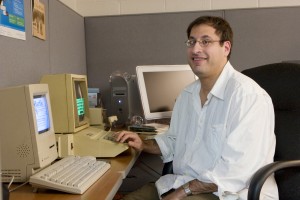 Matthew G. Kirschenbaum is Associate Professor in the Department of English at the University of Maryland and Associate Director of the Maryland Institute for Technology in the Humanities (MITH, an applied thinktank for the digital humanities). He is also an affiliated faculty member with the College of Information Studies at Maryland, and a member of the teaching faculty at the University of Virginia’s Rare Book School. His first book, Mechanisms: New Media and the Forensic Imagination, was published by the MIT Press in 2008 and won the 2009 Richard J. Finneran Award from the Society for Textual Scholarship (STS), the 2009 George A. and Jean S. DeLong Prize from the Society for the History of Authorship, Reading, and Publishing (SHARP), and the 16th annual Prize for a First Book from the Modern Language Association (MLA). In 2010 he co-authored (with Richard Ovenden and Gabriela Redwine) Digital Forensics and Born-Digital Content in Cultural Heritage Collections, a report published by the Council on Library and Information Resources and recognized with a commendation from the Society of American Archivists.Kirschenbaum speaks and writes often on topics in the digital humanities and new media; his work has received coverage in the Atlantic, Slate, New York Times, The Guardian, National Public Radio, Wired, Boing Boing, Slashdot, and the Chronicle of Higher Education. His current book project is entitled Track Changes: A Literary History of Word Processing, and is under contract to Harvard University Press. He is a 2011 Guggenheim Fellow. See http://www.mkirschenbaum.net for more.
Matthew G. Kirschenbaum is Associate Professor in the Department of English at the University of Maryland and Associate Director of the Maryland Institute for Technology in the Humanities (MITH, an applied thinktank for the digital humanities). He is also an affiliated faculty member with the College of Information Studies at Maryland, and a member of the teaching faculty at the University of Virginia’s Rare Book School. His first book, Mechanisms: New Media and the Forensic Imagination, was published by the MIT Press in 2008 and won the 2009 Richard J. Finneran Award from the Society for Textual Scholarship (STS), the 2009 George A. and Jean S. DeLong Prize from the Society for the History of Authorship, Reading, and Publishing (SHARP), and the 16th annual Prize for a First Book from the Modern Language Association (MLA). In 2010 he co-authored (with Richard Ovenden and Gabriela Redwine) Digital Forensics and Born-Digital Content in Cultural Heritage Collections, a report published by the Council on Library and Information Resources and recognized with a commendation from the Society of American Archivists.Kirschenbaum speaks and writes often on topics in the digital humanities and new media; his work has received coverage in the Atlantic, Slate, New York Times, The Guardian, National Public Radio, Wired, Boing Boing, Slashdot, and the Chronicle of Higher Education. His current book project is entitled Track Changes: A Literary History of Word Processing, and is under contract to Harvard University Press. He is a 2011 Guggenheim Fellow. See http://www.mkirschenbaum.net for more.
David Mimno on Topic Modeling with MALLET, September 30th, 4:15-5:30pm
On 29, Sep 2013 | In Meetings | By Matthew K. Gold
Please join CUNY DHI and the Digital Praxis Seminar for a talk by David Mimno on Topic Modeling with MALLET.
This event will take place on Monday, September 30, 2013 from 4:15-5:30pm at the Graduate Center, CUNY in the 9th floor Skylight Room.
Details are below – we look forward to seeing you there! Please RSVP here.
In the last ten years we have seen the creation of massive digital text collections, from Twitter feeds to million-book libraries, all in dozens of languages. At the same time, researchers have developed text mining methods that go beyond simple word frequency analysis to uncover thematic patterns. When we combine big data with powerful algorithms, we enable analysts in many different fields to enhance qualitative perspectives with quantitative measurements. But these methods are only useful if we can apply them at massive scale and distinguish consistent patterns from random variations. In this talk I will describe my work building reliable topic modeling methodologies for humanists, social scientists and science policy officers.
Bio:
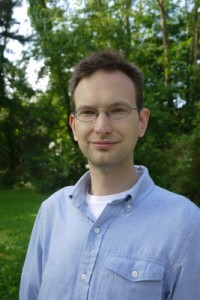 David Mimno is an assistant professor in the Information Science department at Cornell University. His research is on developing machine learning models and algorithms, with a particular focus on applications in Humanities and Social Science. He received his BA in Classics and Computer Science from Swarthmore College and PhD in Computer Science from the University of Massachusetts, Amherst. He was a CRA Computing Innovation fellow at Princeton University. Before graduate school, he served as Head Programmer at the Perseus Project, a digital library for cultural heritage materials, at Tufts University. Mimno is currently chief architect for the MALLET machine learning toolkit.
David Mimno is an assistant professor in the Information Science department at Cornell University. His research is on developing machine learning models and algorithms, with a particular focus on applications in Humanities and Social Science. He received his BA in Classics and Computer Science from Swarthmore College and PhD in Computer Science from the University of Massachusetts, Amherst. He was a CRA Computing Innovation fellow at Princeton University. Before graduate school, he served as Head Programmer at the Perseus Project, a digital library for cultural heritage materials, at Tufts University. Mimno is currently chief architect for the MALLET machine learning toolkit.
CUNY Digital Humanities Initiative Fall 2013 Semester Schedule
On 28, Sep 2013 | In Meetings | By Matthew K. Gold
We’re delighted to present our Fall 2013 CUNY DHI Speaker Series Schedule, which this year includes events associated with the Graduate Center’s Digital Praxis Seminar. All talks take place at The Graduate Center, CUNY, located on 5th Avenue between 34th and 35th. Please join us!
Lev Manovich on Data Visualization
Mon 9/23, 4:15pm-5:30pm, C415A: Lev Manovich (Graduate Center, CUNY) on Data Visualization
David Mimno on Topic Modeling
Mon 9/30, 4:15pm-5:30pm, Skylight Room 9100: David Mimno (Cornell) on Topic Modeling with MALLET
Doug Eyman & Collin Brooke on DH and Rhetoric
Tues 10/8, 6:30pm-8:30pm, Room C415A: Doug Eyman (George Mason University) on “Digital Rhetoric and the Infrastructure of DH” and Collin Brooke (Syracuse University) on “Too Big to Scale? Culturomics and Crypto-Rhetorics”
Matthew Kirschenbaum on Word Processing
Tues 10/15, 4:15pm-5:30pm, Room C204/C205: Matthew Kirschenbaum (University of Maryland) on “Track Changes: The Literary History of Word Processing”
William Turkel on Physical Computing and the Humanities
Mon 10/21, 4:15pm-5:30pm, Skylight Room (9100): William Turkel (Western University Ontario) on humanistic fabrication and physical computing
Larry Smarr on Digital Culture and the Future Internet
Wed 10/30, 6:00pm-8:00pm, Room C205: Larry Smarr (California Institute for Telecommunications and Information Technology (Calit2)) on “Digital Culture and the Future Internet”
Kathleen Fitzpatrick on Scholarly Communication
Mon 11/4, 4:15pm-5:30pm, Room 9206/9207: Kathleen Fitzpatrick (Modern Language Association) on scholarly communication
Ray Siemens on the Digital Social Edition
Mon 11/13, 4:15p-5:30p Rooms C204/C205: Ray Siemens (University of Victoria) on the Digital Social Edition
Katina Rogers on Alt-Academic Careers
Mon 11/18, 4:15p-5:30p Rooms 9204/9205: Katina Rogers (Modern Language Association) on Alt-Academic Careers
Tom Scheinfeldt on DH Project Management
Mon 11/25, 4:15pm-5:30pm, Skylight Room (9100): Tom Scheinfeldt (University of Connecticut) on managing DH projects
Simone Browne on Race, Surveillance, and Technology
Mon 12/9, 4:15pm-5:30pm, Skylight Room (9100): Simone Browne (University of Texas at Austin) on race, surveillance, and technology
Doug Eyman and Collin Brooke, October 8th 6:30-8:30pm
On 25, Sep 2013 | In Uncategorized | By Amanda Licastro
Please join CUNY DHI and the Graduate Center Composition and Rhetoric Community (GCCRC) for a conversation about the intersection of writing studies and digital humanities with Doug Eyman and Collin Brooke. We are excited to welcome these two innovative scholars to share in an important discussion concerning the future of digital rhetoric. Doug Eyman is a professor of digital rhetoric, technical and scientific communication, and professional writing at George Mason University and the senior editor of Kairos: A Journal of Rhetoric, Technology, and Pedagogy; Collin Brooke is a professor of of Rhetoric and Writing at Syracuse University and is the author of Lingua Fracta: Towards of Rhetoric of New Media (complete bios below).
This event will take place on Tuesday, October 8th from 6:30-8:30pm at the Graduate Center, CUNY in Room C415A.
Doug Eyman 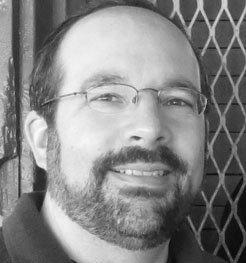
Digital Rhetoric and the Infrastructure of DH
Bio:
Collin Brooke
Too Big to Scale? Culturomics and Crypto-Rhetorics
Since the Google Books Team’s 2010 article in Science and their release of the N-Gram Viewer, the idea of “culturomics” has begun to appear in a variety of academic studies (e.g., Twenge et al.2012, Kesebir & Kesebir 2012, Greenfield 2013). While the resulting claims have garnered attention, both in academic circles and in the popular media, we have spent less time examining the methodological assumptions behind these studies. As a method, culturomics presupposes certain relationships between language and culture; those of us who study rhetoric and digital humanities should be conscious of and prepared to interrogate those assumptions. Drawing on network studies as well as what Hayden White once described as the “tropics of discourse,” this presentation offers both an examination and critique of culturomics as method.

Bio:
May 2: Beth Harris (Khan Academy) “Art History Education Goes Digital: The Problem (& Promise) of the Digital Image”
On 25, Apr 2013 | In Meetings | By Charlie Edwards
Please join us on Thursday May 2, 2013 for our final event of the semester: we are excited to welcome Beth Harris, co-Dean with Steven Zucker of Art and History at the Khan Academy. She and Dr. Zucker are Executive Editors of Smarthistory at Khan Academy, an open educational resource for art history that they co-founded (as smarthistory.org) in 2005.
Details are below – we look forward to seeing you there!
Beth Harris
“Art History Education Goes Digital: The Problem (& Promise) of the Digital Image”
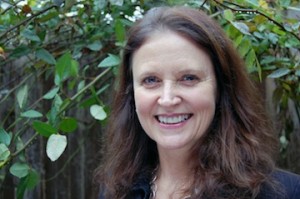 Thursday May 2, 2013, 6:30pm-8:30pm
Thursday May 2, 2013, 6:30pm-8:30pm
CUNY Graduate Center, Room 6421
Co-sponsored by the Master of Arts Program in Liberal Studies, CUNY Graduate Center.
Please register here: http://cunydhi-bethharris.eventbrite.com/
The event is free and open to the public; registration is not mandatory.
Images may be everywhere, but we are doing very little to educate our students about their history and how to engage images critically. This deficiency is compounded by the fact that open access to digital reproductions of cultural heritage objects in the public domain is still many years away. Museums—the institutions that own many of these works of art and often control the best images—remain committed to print publications, and use the web primarily for marketing. At Smarthistory, we have been trying to fill this void, asking how can we best use the web for art history education. Can we scale (with MOOCs in mind) humanities education? Can we make art history more engaging by making it more conversational and experiential while taking advantage of the proliferation of images and video that can contextualize the work of art? How can art history help other disciplines to use images more responsibly?
About Beth Harris:
Dr. Beth Harris is co-Dean with Steven Zucker of Art and History at the Khan Academy. Before joining the Khan Academy, she was the first person to hold the position of Director of Digital Learning at The Museum of Modern Art, where she started MoMA Courses Online. She also co-produced educational videos, websites and apps. Before joining MoMA, Beth was Associate Professor and Director of Distance Learning at the Fashion Institute of Technology where she taught both online and in the classroom. Her scholarly work includes editing and contributing to Famine and Fashion: Needlewomen in the Nineteenth Century (Ashgate, 2005), many book reviews, and “The Slide Library: A Posthumous Assessment in the Service of Our Digital Future,” in Teaching Art History with Technology: Case Studies (2008). She received her Master’s degree from the Courtauld Institute of Art in London, and her Doctorate in Art History from the Graduate Center of the City University of New York.


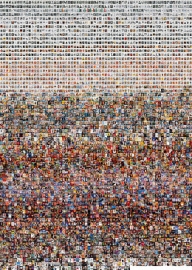
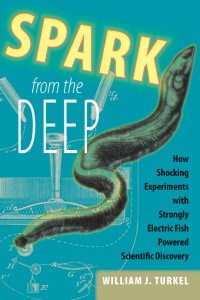

 Welcome to the blog of the CUNY DHI, an effort to build momentum and community around Digital Humanities practitioners at CUNY. We hope you'll join us at our upcoming events and that you'll follow this blog to hear about the latest news in the field.
Welcome to the blog of the CUNY DHI, an effort to build momentum and community around Digital Humanities practitioners at CUNY. We hope you'll join us at our upcoming events and that you'll follow this blog to hear about the latest news in the field.



Recent Comments